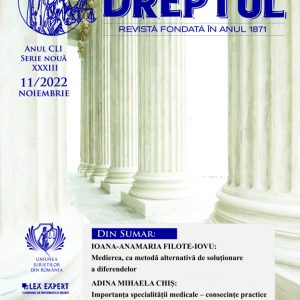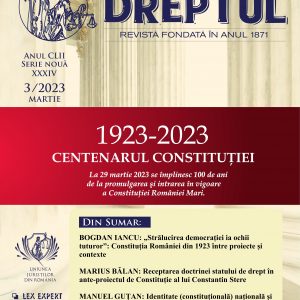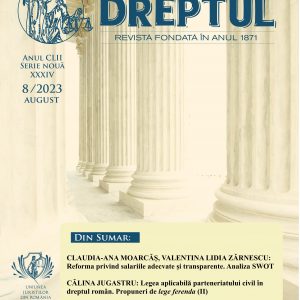-
 The debate over the future of the juveniles’ court and the juvenile justice system has been between proponents of a retributive philosophy and advocates of the traditional individual treatment mission. Both punitive approaches and those focused solely on treatment have failed to satisfy basic needs of crime victims, the community and offenders themselves. Neither offers hope for preserving a separate justice system for juveniles. This document outlines an alternative philosophy, restorative justice, and a new mission, the balanced approach, which require that juvenile justice system devotes attention to making amends to victim and the community, increasing offender competencies, and protecting the public, through process in which offenders, victims and the communities are all active participants.
The debate over the future of the juveniles’ court and the juvenile justice system has been between proponents of a retributive philosophy and advocates of the traditional individual treatment mission. Both punitive approaches and those focused solely on treatment have failed to satisfy basic needs of crime victims, the community and offenders themselves. Neither offers hope for preserving a separate justice system for juveniles. This document outlines an alternative philosophy, restorative justice, and a new mission, the balanced approach, which require that juvenile justice system devotes attention to making amends to victim and the community, increasing offender competencies, and protecting the public, through process in which offenders, victims and the communities are all active participants. -
 In this study, the author aims to present the relevant aspects of mediation, as an alternative means of resolving disputes that the parties may use by virtue of availability, highlighting both its advantages and the reasons why the law governing it has become increasingly less applied. In addition, there are situations in which the courts have been called to approve mediation agreements, but also the author’s opinion regarding the need to use the optional procedure, except for disputes in the field of family law, which should be analyzed by judges, who are the most able to pronounce solutions that correspond most faithfully to the best interests of the child.
In this study, the author aims to present the relevant aspects of mediation, as an alternative means of resolving disputes that the parties may use by virtue of availability, highlighting both its advantages and the reasons why the law governing it has become increasingly less applied. In addition, there are situations in which the courts have been called to approve mediation agreements, but also the author’s opinion regarding the need to use the optional procedure, except for disputes in the field of family law, which should be analyzed by judges, who are the most able to pronounce solutions that correspond most faithfully to the best interests of the child. -

-
 Potrivit art. 457 alin. (1) C.pr.civ., hotărârea judecătorească este supusă numai căilor de atac prevăzute de lege, în condițiile și termenele stabilite de aceasta, indiferent de mențiunile din dispozitivul ei. De asemenea, conform prevederilor art. 460 alin. (3) C.pr.civ., în cazul în care prin aceeași hotărâre au fost soluționate mai multe cereri principale sau incidentale, dintre care unele sunt supuse apelului, iar altele recursului, hotărârea în întregul ei este supusă apelului.
Potrivit art. 457 alin. (1) C.pr.civ., hotărârea judecătorească este supusă numai căilor de atac prevăzute de lege, în condițiile și termenele stabilite de aceasta, indiferent de mențiunile din dispozitivul ei. De asemenea, conform prevederilor art. 460 alin. (3) C.pr.civ., în cazul în care prin aceeași hotărâre au fost soluționate mai multe cereri principale sau incidentale, dintre care unele sunt supuse apelului, iar altele recursului, hotărârea în întregul ei este supusă apelului. -
 Seen by Aristotle as a pure ornamental rhetorical figure, the metaphor is no longer intended in the 21th century to embellish poetical expression, but to generate new forms of access to knowledge, leading from a paradigm of expressive semantic regime to a semantic cognitive regime. It is considered today that the metaphor is not only related to the literary style, but to the whole of human sciences. Even the definition of the right has fuelled an abundant literature that is lost in the darkness of times, and which seems to have failed to reach a right conclusion, as lawyers still seek a definition for their concept of law. This is because the meaning of law, its force and its reason to be keep an irreducible part of mystery, a mystery derived, in part, from the fact that the right term is a metaphor and, like any metaphor, linguistically materializes the cognitive processes of communication and provides, by analogy, an imaginative support that binds it to an already familiar conceptual circuit.
Seen by Aristotle as a pure ornamental rhetorical figure, the metaphor is no longer intended in the 21th century to embellish poetical expression, but to generate new forms of access to knowledge, leading from a paradigm of expressive semantic regime to a semantic cognitive regime. It is considered today that the metaphor is not only related to the literary style, but to the whole of human sciences. Even the definition of the right has fuelled an abundant literature that is lost in the darkness of times, and which seems to have failed to reach a right conclusion, as lawyers still seek a definition for their concept of law. This is because the meaning of law, its force and its reason to be keep an irreducible part of mystery, a mystery derived, in part, from the fact that the right term is a metaphor and, like any metaphor, linguistically materializes the cognitive processes of communication and provides, by analogy, an imaginative support that binds it to an already familiar conceptual circuit. -
 Property (or ownership), seen as a subjective right, is the principle according to which we legally determine who can own what, how and to what extent. The legal conception of property rights is reflected in the economy, and the economy, by the force of its oftentimes ideologically driven mandates, spills over into the realm of the Law, molding our understanding of property to the very same extent that this understanding molds, constrains and defines the economy itself. The right of property, as a legal category, is not fixed and unchanging. On the contrary, property lends itself to a multiplicity of conceptual frameworks, sometimes at odds with one another. The modern understanding of property, however, is deeply indebted to Roman law. The Roman spirit, mercantile par excellence, is embedded into the innermost recesses of our contemporary theories of property rights. All this because the Roman legacy includes a perfectly flexible conceptual toolkit, eminently adapted to the whims of the market. The analysis of all of this constitutes the object of this study.
Property (or ownership), seen as a subjective right, is the principle according to which we legally determine who can own what, how and to what extent. The legal conception of property rights is reflected in the economy, and the economy, by the force of its oftentimes ideologically driven mandates, spills over into the realm of the Law, molding our understanding of property to the very same extent that this understanding molds, constrains and defines the economy itself. The right of property, as a legal category, is not fixed and unchanging. On the contrary, property lends itself to a multiplicity of conceptual frameworks, sometimes at odds with one another. The modern understanding of property, however, is deeply indebted to Roman law. The Roman spirit, mercantile par excellence, is embedded into the innermost recesses of our contemporary theories of property rights. All this because the Roman legacy includes a perfectly flexible conceptual toolkit, eminently adapted to the whims of the market. The analysis of all of this constitutes the object of this study. -
 In this study the author makes a comprehensive analysis of cyber crime and how to fight, prevent and investigate this. The analytical approach is based on the definition of cyber crime, of its characteristics, and finally on the identification of the specific means of evidence that are used in the criminal investigations
In this study the author makes a comprehensive analysis of cyber crime and how to fight, prevent and investigate this. The analytical approach is based on the definition of cyber crime, of its characteristics, and finally on the identification of the specific means of evidence that are used in the criminal investigations -
 In our previous study we have analyzed cybercrime in the Cloud Computing environment. Our research led us to the conclusion that, with the rise of Cloud Computing services, cybercriminals benefit of new and improved ways of conducting their illicit activity, thus using the Cloud environment as an instrument or as a specific target. Furthermore, we have discovered that cybercrime is constantly changing. Emerging technology trends like Big Data, Social Networks, the Internet of Things and Cloud Computing services change the way that cybercriminals act today. As more and more relevant data is located in the Cloud, the cybercrime threat also increases. Cloud Computing also offers immense computing power at the disposal of nearly anyone, criminals included. This leads to the migration phenomenon of cybercrime. Traditional forms of cybercrime are gradually replaced by new and more complex ones, like those that occur in Cloud Computing and in other information technology environments. Our study shows that there are a series of factors that are held responsible for the cybercrime migration phenomenon. These factors include: powerful processing power, huge volumes of valuable data, extended service availability, risk of mass attacks, vanishing fingerprints, adaptable crime tools and others. Only by examining the way that cybercrime evolves we will be able to reduce its harmful effects.
In our previous study we have analyzed cybercrime in the Cloud Computing environment. Our research led us to the conclusion that, with the rise of Cloud Computing services, cybercriminals benefit of new and improved ways of conducting their illicit activity, thus using the Cloud environment as an instrument or as a specific target. Furthermore, we have discovered that cybercrime is constantly changing. Emerging technology trends like Big Data, Social Networks, the Internet of Things and Cloud Computing services change the way that cybercriminals act today. As more and more relevant data is located in the Cloud, the cybercrime threat also increases. Cloud Computing also offers immense computing power at the disposal of nearly anyone, criminals included. This leads to the migration phenomenon of cybercrime. Traditional forms of cybercrime are gradually replaced by new and more complex ones, like those that occur in Cloud Computing and in other information technology environments. Our study shows that there are a series of factors that are held responsible for the cybercrime migration phenomenon. These factors include: powerful processing power, huge volumes of valuable data, extended service availability, risk of mass attacks, vanishing fingerprints, adaptable crime tools and others. Only by examining the way that cybercrime evolves we will be able to reduce its harmful effects. -
 As a novelty, the legislator provides, in the current Civil Procedure Code, that the evidence of an act or of a legal fact can be made, among others, by using the material means of evidence (Article 250), to which it dedicates the provisions of Articles 341–344, provisions which constitute the common law in the matter. Things which, by their attributes, by their appearance or by the signs or traces they preserve, serve to establish a fact that can lead to the settlement of the trial are material means of evidence. Likewise, in the legislator’s conception, the registrations of the state or location of objects or certain factual situations, regardless of the way of registration, are also material means of evidence. In this hypothesis, the material evidence (the content of the registration) is submitted to the court through the technical support used for registration. The solution of the legislator to acknowledge, in the Civil Procedure Code, provisions relative to the material means of evidence is natural, since, in accordance with the criteria used in the doctrine, material evidence is direct, primary, or immediate evidence, personally perceived by the judge of the case. Perhaps that one of the sources of inspiration for the Romanian legislator was the Civil Code of Québec. Although the French civil legislation does not contain express provisions on the material evidence, the French doctrine and the case law of the French Court of Cassation in the matter have also represented a reference for the Romanian legislator.
As a novelty, the legislator provides, in the current Civil Procedure Code, that the evidence of an act or of a legal fact can be made, among others, by using the material means of evidence (Article 250), to which it dedicates the provisions of Articles 341–344, provisions which constitute the common law in the matter. Things which, by their attributes, by their appearance or by the signs or traces they preserve, serve to establish a fact that can lead to the settlement of the trial are material means of evidence. Likewise, in the legislator’s conception, the registrations of the state or location of objects or certain factual situations, regardless of the way of registration, are also material means of evidence. In this hypothesis, the material evidence (the content of the registration) is submitted to the court through the technical support used for registration. The solution of the legislator to acknowledge, in the Civil Procedure Code, provisions relative to the material means of evidence is natural, since, in accordance with the criteria used in the doctrine, material evidence is direct, primary, or immediate evidence, personally perceived by the judge of the case. Perhaps that one of the sources of inspiration for the Romanian legislator was the Civil Code of Québec. Although the French civil legislation does not contain express provisions on the material evidence, the French doctrine and the case law of the French Court of Cassation in the matter have also represented a reference for the Romanian legislator. -
 După ce în urmă cu peste trei decenii prin studiul inițiator (1989)1 urmat de primul curs (1992)2 și apoi de întâiul tratat (1998)3 în materie se afirmă că fondatorul incontestabil al dreptului mediului ca disciplină științifică în România, prin lucrarea pe care o semnalăm și prezentăm prin rândurile de față, profesorul Mircea Duțu, directorul Institutului de Cercetări Juridice „Acad. Andrei Rădulescu” al Academiei Române și președintele Universității Ecologice din București, deschide cu titlu de pionierat absolut calea unui nou domeniu al reflecției juridice: dreptul climei; și de această dată, după ce acum un an anunța, printr-un inspirat și documentat studiu4 , asemenea evoluții rapide și complexe, iată că s-a ajuns la un reprezentativ volum de idei și analize asupra regimului juridic al acțiunii globale de combatere și atenuare a încălzirii globale și adaptării la efectele schimbărilor climatice.
După ce în urmă cu peste trei decenii prin studiul inițiator (1989)1 urmat de primul curs (1992)2 și apoi de întâiul tratat (1998)3 în materie se afirmă că fondatorul incontestabil al dreptului mediului ca disciplină științifică în România, prin lucrarea pe care o semnalăm și prezentăm prin rândurile de față, profesorul Mircea Duțu, directorul Institutului de Cercetări Juridice „Acad. Andrei Rădulescu” al Academiei Române și președintele Universității Ecologice din București, deschide cu titlu de pionierat absolut calea unui nou domeniu al reflecției juridice: dreptul climei; și de această dată, după ce acum un an anunța, printr-un inspirat și documentat studiu4 , asemenea evoluții rapide și complexe, iată că s-a ajuns la un reprezentativ volum de idei și analize asupra regimului juridic al acțiunii globale de combatere și atenuare a încălzirii globale și adaptării la efectele schimbărilor climatice. -
 Apărută sub egida Institutului de Cercetări Juridice „Acad. Andrei Rădulescu” al Academiei Române, sub semnătura a doi prestigioși cercetători ai săi și bine-cunoscuți specialiști ai temei, lucrarea este consacrată în mod evident centenarului tratatelor de la Paris din 1919/1920, în general, și al celui de la Trianon din 4 iunie 1920, în special. Dacă secolul a reprezentat adesea, în istoria omenirii, pe lângă un reper de marcare a scurgerii timpului, un instrument de stabilire a cronologiei faptelor și a evenimentelor și o veritabilă unitate de apreciere a progresului economico-social și cultural, cum se apreciază în prefața lucrării (plasată sub titlul O simplă punere în temă), cel al statului național și al dreptului internațional public ca drept al păcii și al cooperării interstatale se exprimă printr-o moștenire de concepte și experiențe juridico-istorice care au marcat inaugurarea și conferit conținut unei etape istorice majore.
Apărută sub egida Institutului de Cercetări Juridice „Acad. Andrei Rădulescu” al Academiei Române, sub semnătura a doi prestigioși cercetători ai săi și bine-cunoscuți specialiști ai temei, lucrarea este consacrată în mod evident centenarului tratatelor de la Paris din 1919/1920, în general, și al celui de la Trianon din 4 iunie 1920, în special. Dacă secolul a reprezentat adesea, în istoria omenirii, pe lângă un reper de marcare a scurgerii timpului, un instrument de stabilire a cronologiei faptelor și a evenimentelor și o veritabilă unitate de apreciere a progresului economico-social și cultural, cum se apreciază în prefața lucrării (plasată sub titlul O simplă punere în temă), cel al statului național și al dreptului internațional public ca drept al păcii și al cooperării interstatale se exprimă printr-o moștenire de concepte și experiențe juridico-istorice care au marcat inaugurarea și conferit conținut unei etape istorice majore. -

